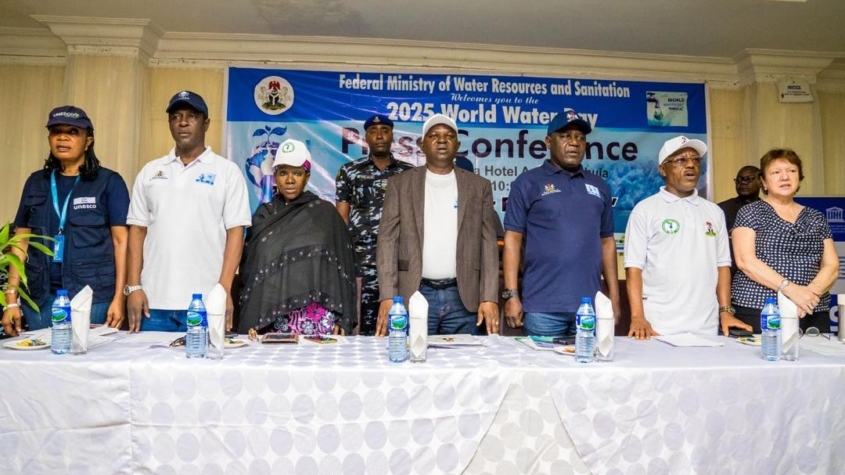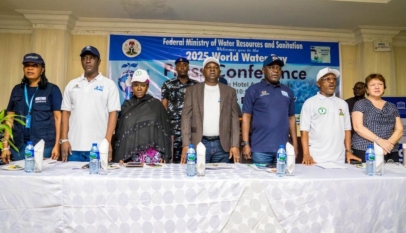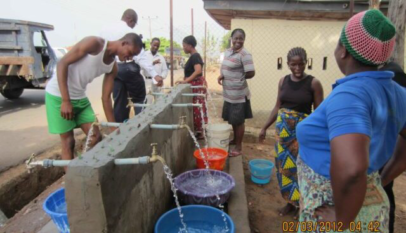
World Water Day: FG urges stakeholder to strengthen water security amid glacier loss
SHOLA Johnson
The Federal Government (FG), has called on stakeholders in the water sector to intensify their efforts in supporting initiatives that will enhance Nigeria’s water security and contribute to peace and development.
Speaking at the commemoration of the 2025 World Water Day, themed Glacier Preservation, the Minister of Water Resources and Sanitation, Engr. Prof. Joseph Utsev, stated that the government will continue to strengthen policies on climate adaptation, enhance flood control systems, and invest in sustainable water infrastructure.
Prof. Utsev further highlighted the various roles stakeholders should implement to enhance water security, adding that “State governments should implement local water conservation programs, promote afforestation, and enforce environmental regulations.
“The private sector must invest in eco-friendly technologies, support sustainable water management initiatives, and engage in corporate social responsibility projects for clean water access.
“Research institutions and NGOs should raise awareness about environmental issues like glacier loss, conduct studies on climate resilience, and advocate for community-based adaptation measures.
“Communities and individuals must adopt water-saving practices, participate in tree-planting efforts, and push for stronger environmental policies.”
Taking these steps, he said, Nigeria can strengthen its water security and mitigate the broader impacts of climate change.
Prof. Utsev, however explained that while Nigeria does not have glaciers and they may seem distant from the country’s immediate water challenges, their preservation remains crucial for the global climate system.
He noted that the rapid melting of these natural ice formations has contributed to extreme weather events worldwide, and nations far from glacial regions—like Nigeria—are not immune to these cascading effects.
“The loss of glaciers contributes to rising sea levels, extreme weather events, and disruptions in freshwater availability—issues that have direct consequences for Nigeria, including increased flooding, droughts, and shifts in agricultural productivity,” he said.
Highlighting the crucial role of glaciers in sustaining life and regulating the water cycle, Prof. Utsev emphasized that glaciers serve as a vital water source for both people and wildlife in many regions. They also impact sea levels and are used to generate hydropower in some parts of the world.
On the impact of glacial melting on Nigeria, he explained that disrupted global weather systems lead to erratic rainfall patterns, causing flooding in some areas and prolonged droughts in others. “According to the Nigerian Meteorological Agency (NiMet) 2025 Seasonal Climate Prediction, annual rainfall patterns may become increasingly unpredictable, affecting over 70% of Nigeria’s agricultural sector,” he added.
He further outlined key challenges Nigeria faces due to glacial melting: “Coastal Erosion and Rising Sea Levels; The rising sea levels, driven by glacial melting, pose a significant threat to coastal communities in Lagos, Bayelsa, and Rivers States, increasing flooding and land loss.
“Agricultural and Food Security Risks; Reduced water availability affects irrigation and crop production, threatening the livelihoods of many Nigerians. Reports from the World Bank indicate that Nigeria loses a substantial amount annually due to reduced agricultural yields linked to climate-related water shortages, significantly impacting the country’s total agricultural output, particularly perishable crops like fruits and vegetables.
The Permanent Secretary of the Ministry, Mr. Richard Pheelangwah, emphasized the urgent need for enhanced water resource management, noting that glacier loss directly impacts global freshwater availability.
He urged the media to play a pivotal role in raising awareness and advocating for sustainable water practices at both Local and International levels.
In her remark, Director-General of UNESCO, Ms Audrey Azoulay, analyzed the essential role of glacier in the global water cycle, storing nearly two-thirds of all the freshwater on Earth—they are the water towers of the world.
Azoulay, represented by the National Professional Officer (Science) at UNESCO, Dr Enang Momoh said the Andes Mountains, which supply half of the water flowing into the Amazon River, have lost between 30 and 50% of their glaciers since the 1980s and could lose 97% of their icecaps by the end of the century.
She warned that the glaciers of Mount Kenya, Rwenzori and Kilimanjaro will disappear entirely by 2040 if no action is taken, while the Hindu Kush-Karakoram-Himalayan system, commonly referred to as the ‘Third Pole’, is projected to lose half of its glacier volume by the year 2100.
“Glaciers bear witness to the Earth’s history, holding within them essential information about the atmosphere, wind patterns and other climate conditions of the past. Now, we must take urgent, collective action to protect these vital resources—for the sake of our future,” she said.




